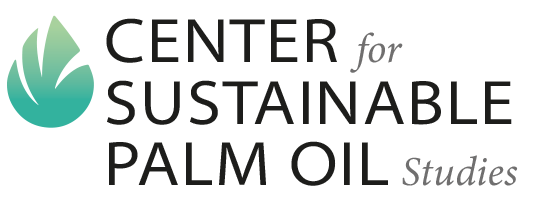
Only three months ago, the United Nations Secretary General António Guterres called the UN’s Intergovernmental Panel on Climate Change (IPCC) report “a code red for humanity”. The landmark study warned the world governments of increasingly extreme weather conditions and a key temperature limit being broken in just over a decade.
While the window of opportunity to act to avoid the most severe impacts of the climate crisis is much narrower than previously thought, the question remains on who should do the heavy lifting when it comes to setting and following international carbon emission targets.
Wealthy countries in the Global North have frequently faced criticism for acting as they are “saving” the Global South whilst also being responsible for exporting their own carbon footprint onto the poorest nations.
With the UN Climate Change conference (COP26) starting today in Glasgow, a major concern for all parties involved is the state of the world’s forests – which in essence are a key tool for mitigating the effects of global warming.
At COP26, representatives from around 200 countries are discussing strategies to drive down emissions, exchanging thoughts on policies to prevent the climate crisis and how to best meet the Paris Agreement target of keeping global warming below critical 1.5 °C.
Although the Global South is the most vulnerable to climate change – having experienced severe socio-economic challenges, higher rates of energy poverty and health inequalities worsened by the climate crisis, it has also been increasingly blamed for deforestation.
While the responsibility of curbing global deforestation levels has been put on the developing nations, unfortunately they have not often been made a part of drafting climate policies where they could play a vital role in addressing the loss and damage incurred by climate change.
A recent study, published by the Carbon Brief, demonstrates how 90% of scientists working on climate change research papers between 2016 and 2020, were affiliated with academic institutions from North America, Europe, or Australia. This explains how the lack of inclusion from voices from the Global South is hampering the understanding of climate change and its impacts on the worst hit regions.
The policy decisions made at COP26 will have an enormous impact on the Global South and its preparedness to tackle the climate crisis.
Yet, it cannot be forgotten how the carbon footprint produced by Europe, North America, and other nations in the Global North, is in fact 100 times greater than that of the world’s poorest nations combined, according to an OXFAM report.
1.6 billion people around the world, particularly those in developing countries, rely on the production and sale of agricultural commodities for their livelihoods, a sector that currently accounts for 11% of all emissions globally.
One of the industries within the agricultural sector that plays a key role in protecting the world’s forests is the palm oil industry. Recently, the leading palm oil producers announced their commitments to transition to net-zero emissions. This demonstrates that the industry is taking the steps necessary to improve its sustainability performance.
Palm oil is mainly produced in Southeast Asia and palm oil from Malaysia and Indonesia accounts for 85% of the US$43 billion global trade in palm oil. From there palm oil is abundantly imported into Western countries where around 50% of all products found from supermarket shelves contain palm oil.
However, the European Union banned palm oil for biofuels in 2018 , claiming to stop imports of palm oil, soy, beef and other products linked to deforestation and unsustainable agriculture by 2030.
The ban, although motivated by environmental concerns, disregarded the significant efforts of palm oil producers to render their industries sustainable and essentially to comply with strict European environmental regulations.
Unfortunately, this pattern of overlooking sustainability initiatives on the ground is often present during international climate dialogues. The efforsts by the Global South are not studied widely enough nor taken into account when drafting environmental policy frameworks.
An example of this comes from Southeast Asia, where in Malaysia, the Malaysian Sustainable Palm Oil (MSPO) certification scheme has a proven track record in achieving climate change priorities, by reducing deforestation levels for four consecutive years.
As a nationally mandated scheme, enforced by the Government of Malaysia, the initiative has achieved notable results in ensuring that the palm oil produced in Malaysia remains sustainable across the entire supply chain, enhancing the inclusion of smallholder farmers.
Moreover, according to a recent report by the Chain Reaction Research, palm oil-related deforestation levels in Malaysia, Indonesia and Papua New Guinea fell by 42% in the first six months of 2021, hitting a three year low.
In addition to the efforts towards a greater sustainability in the sector, as a crop palm oil is extremely efficient: it makes up a third of the world’s vegetable oil demand only on 6% of all allocated cropland. Hence, switching to soy, coconut, sunflower, or rapeseed oil — at least on the scale needed for current demand — would require up to 10 times more land to be deforested.
From an environmental perspective, the ideal scenario would include an increased collaboration between producer nations and the buyer of palm oil to ensure that global markets reward practices that promote sustainability and disincentivize damaging practices.
To serve this purpose, the Forest, Agriculture and Commodity Trade (FACT) Dialogue was launched ahead of COP26, taking an important step towards the right direction. The dialogue brings together the largest producers and consumers of internationally traded agricultural commodities (such as palm oil, soya, cocoa, beef and timber) in order to promote trade and development while simultaneously protecting forests and other ecosystems.
Dialogue and partnerships around forest risk commodities will not only enhance mutual understanding and encourage further cooperation, but also subsequently boost investment, improve livelihoods, increase productivity, reduce costs, and expand the market for sustainably produced agricultural commodities for consumers in both the Global South and the Global North.
With leaders from across the world gathered at COP26, there lies an opportunity to develop more inclusive and just policy frameworks. To tackle key environmental issues including deforestation, voices from the Global South must be a part of the climate debate and their attempts to realize sustainability should not be overlooked.







